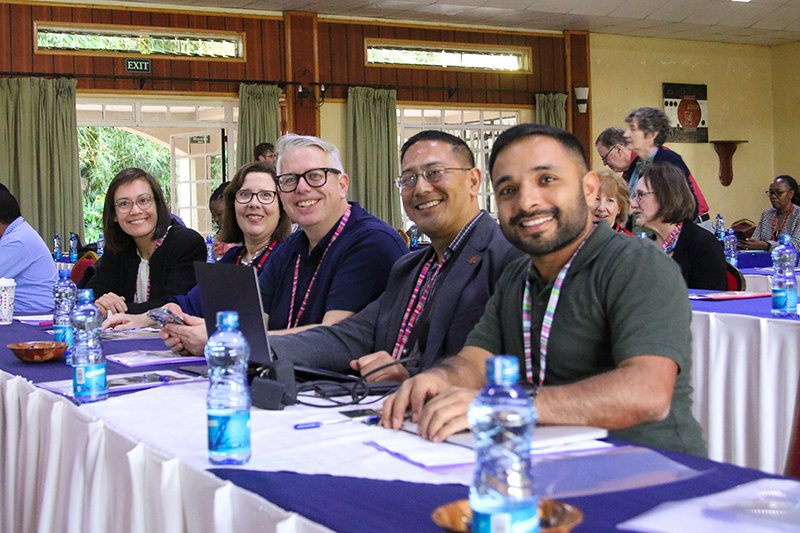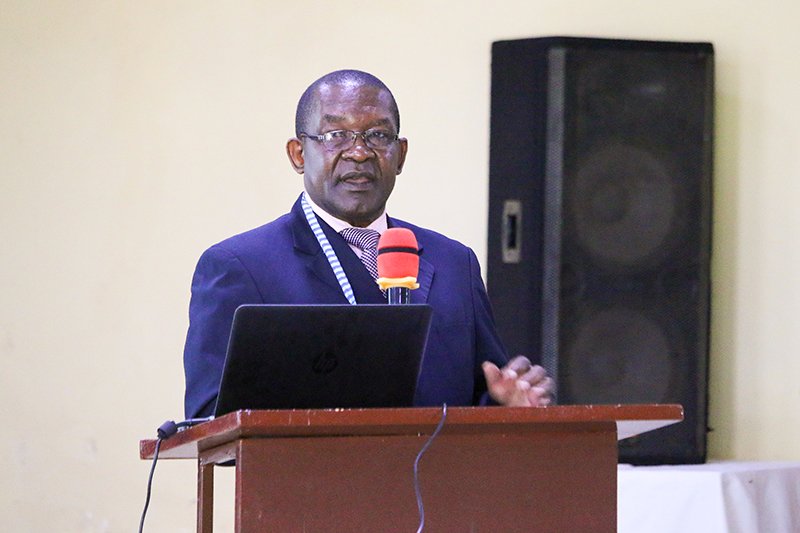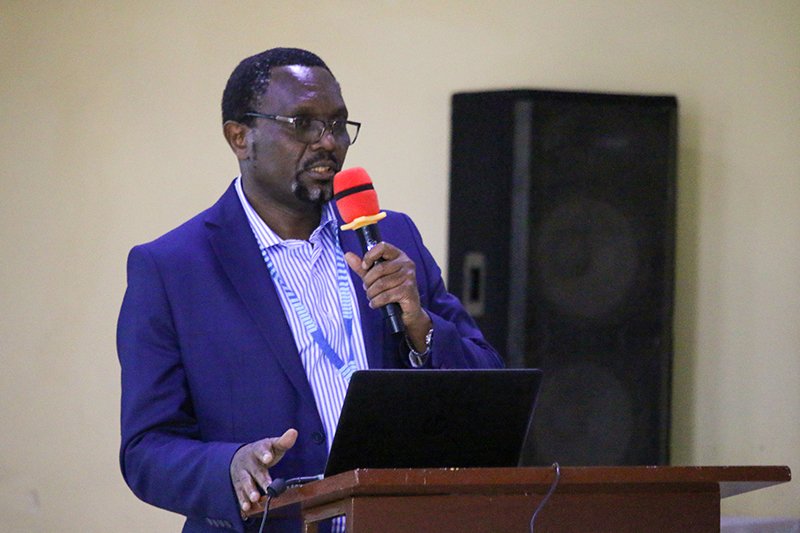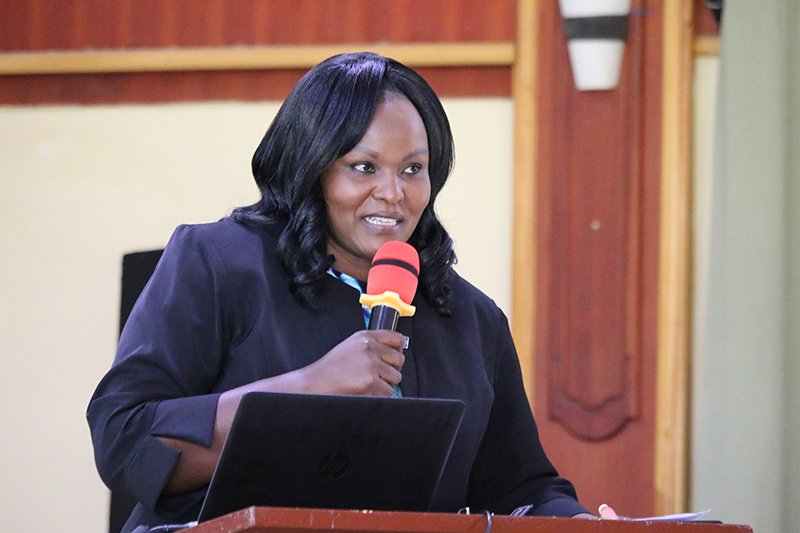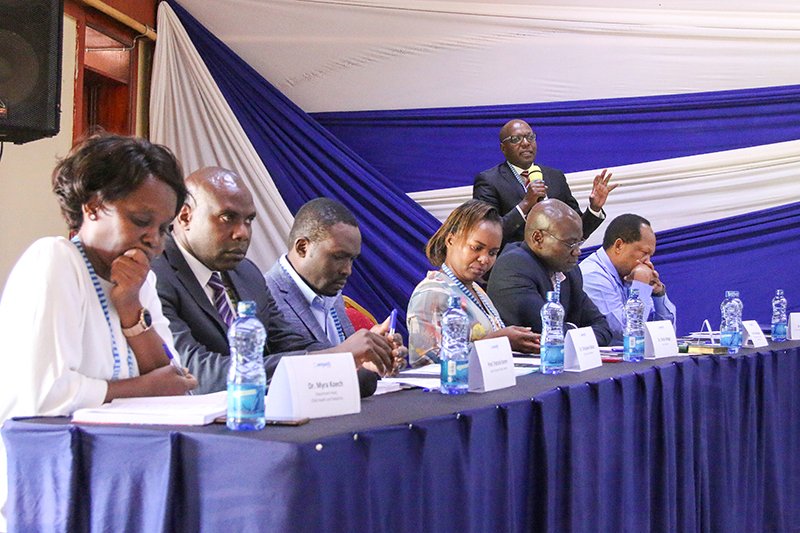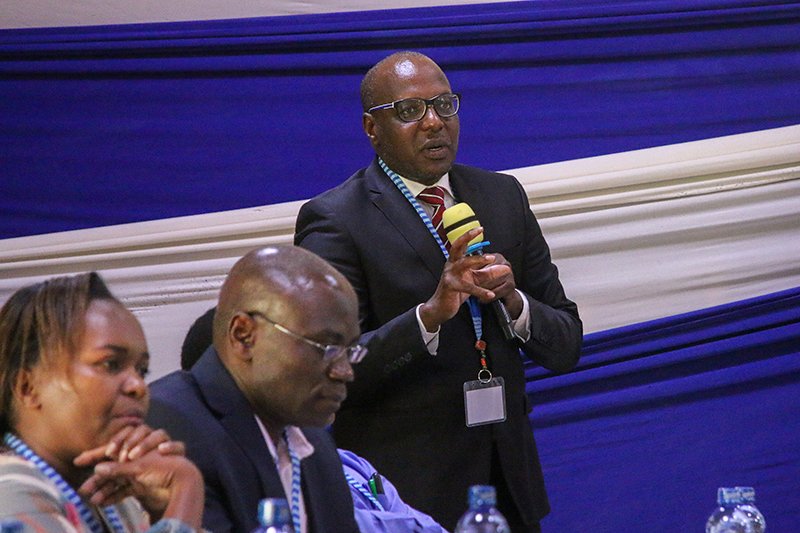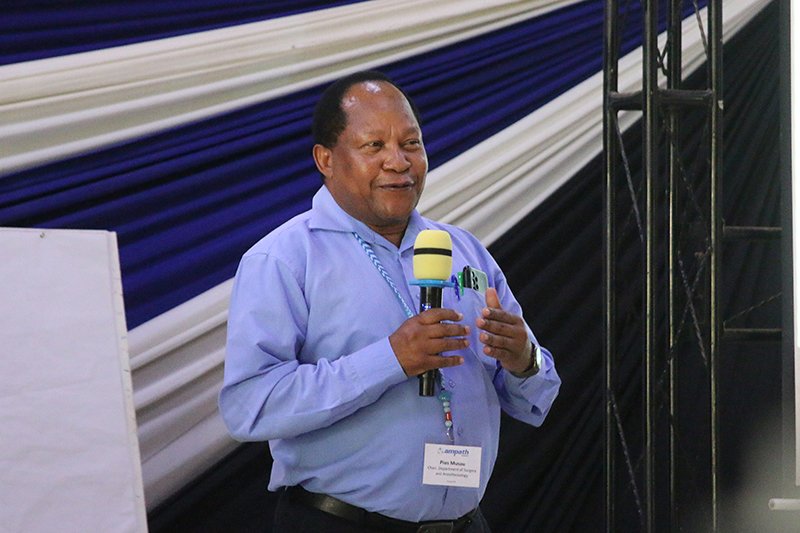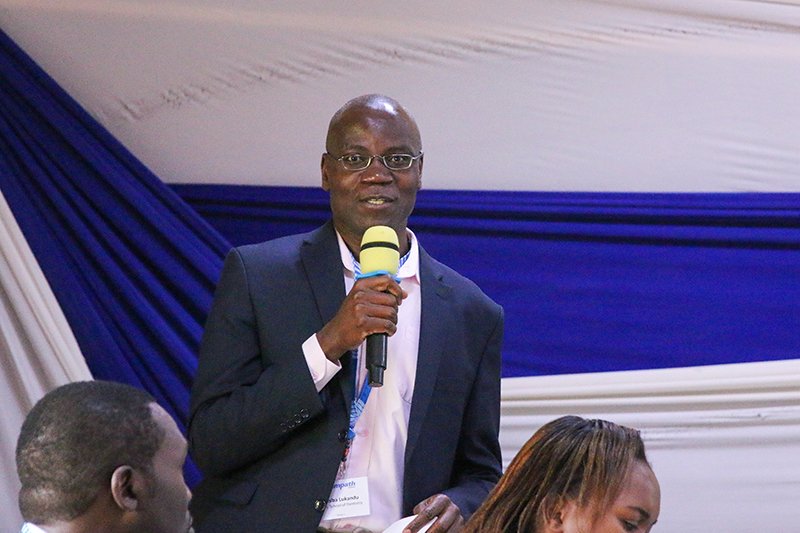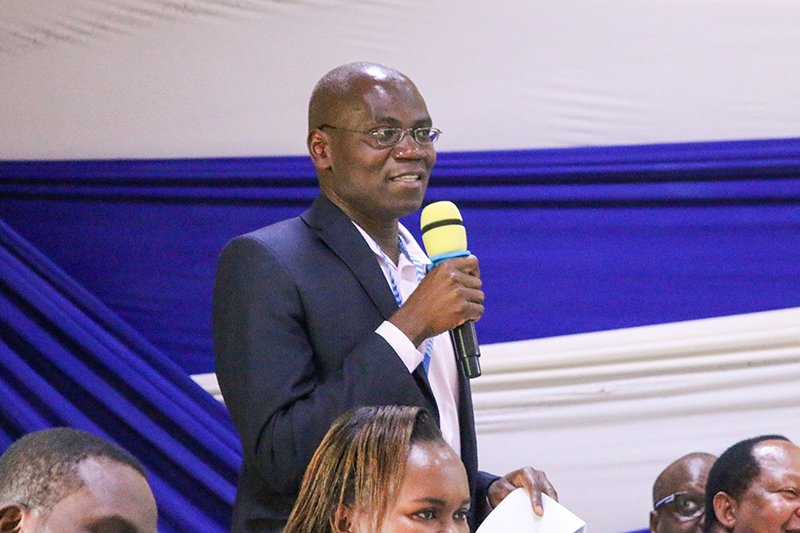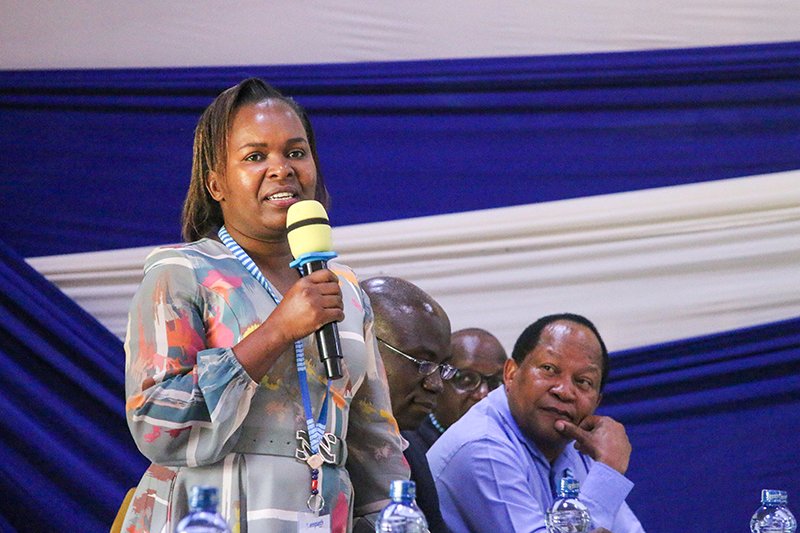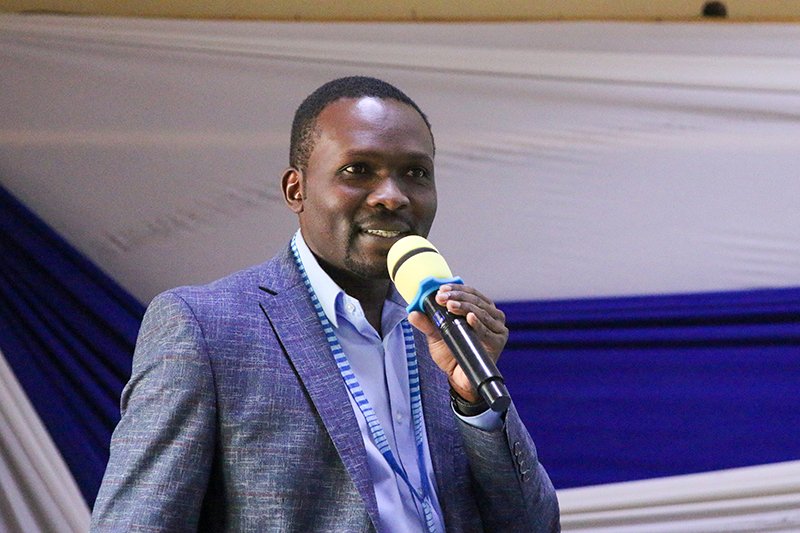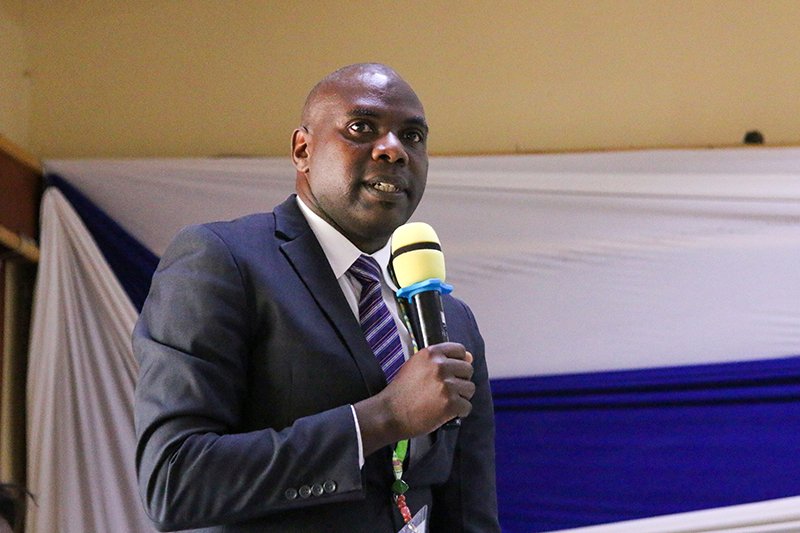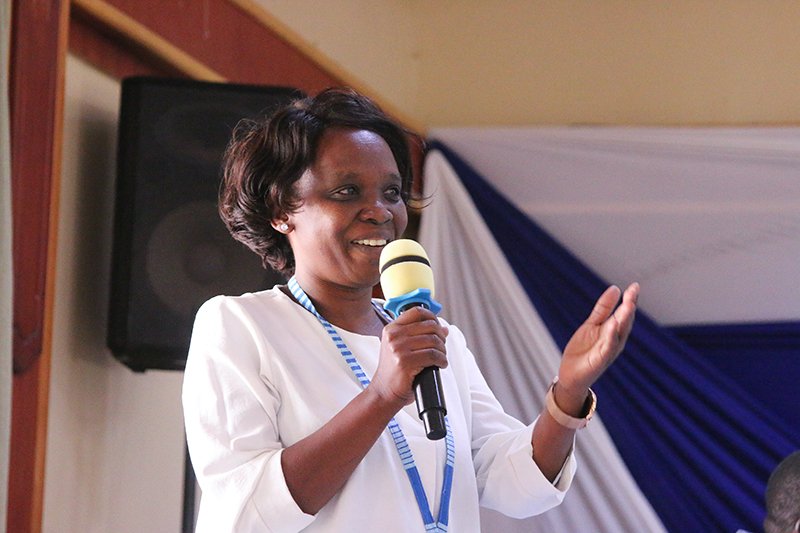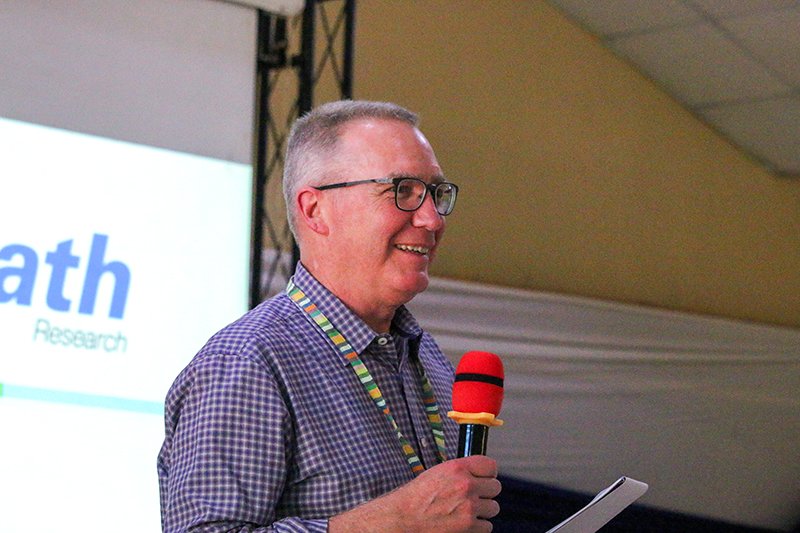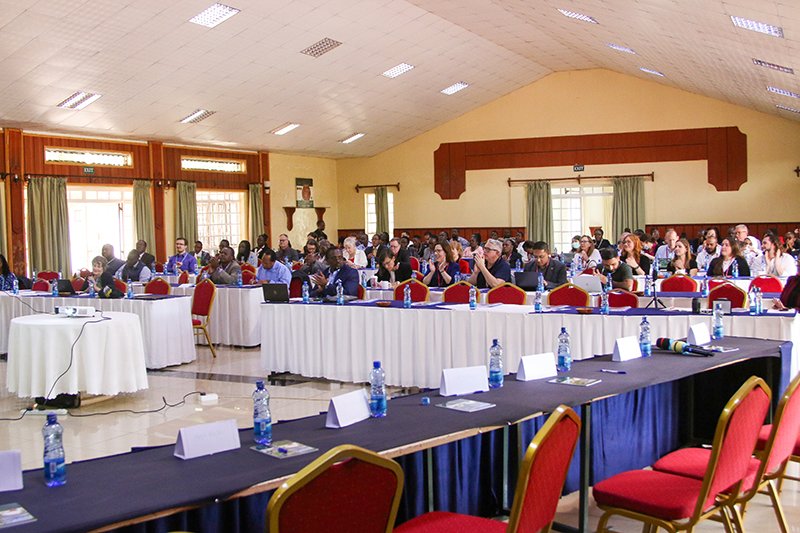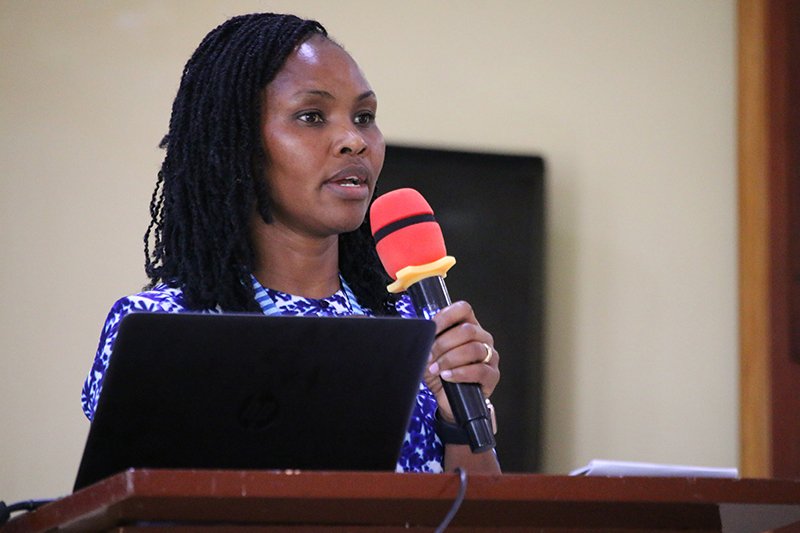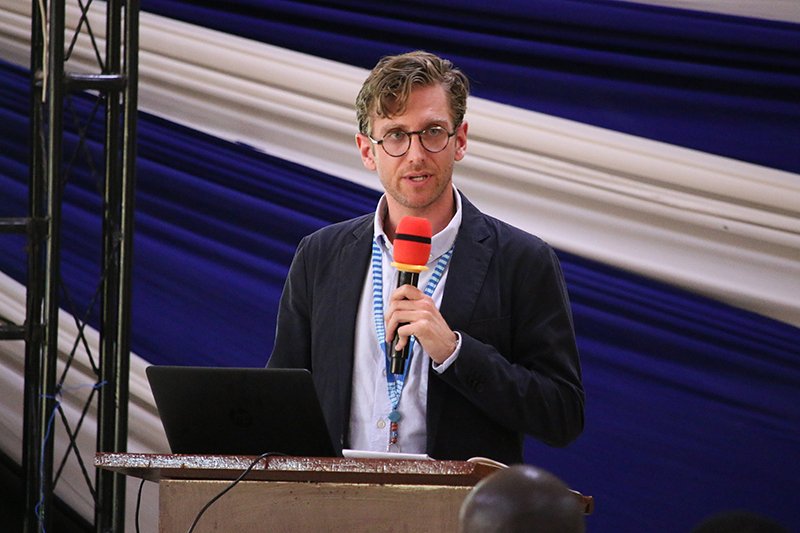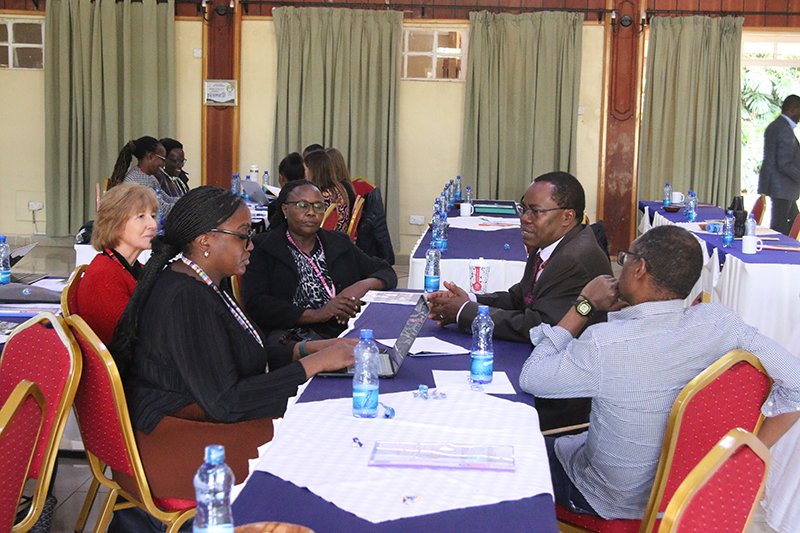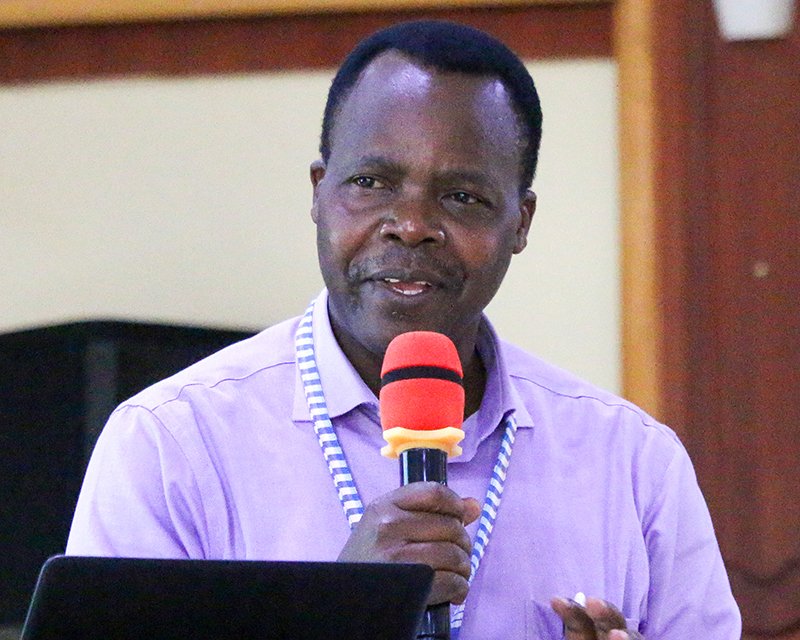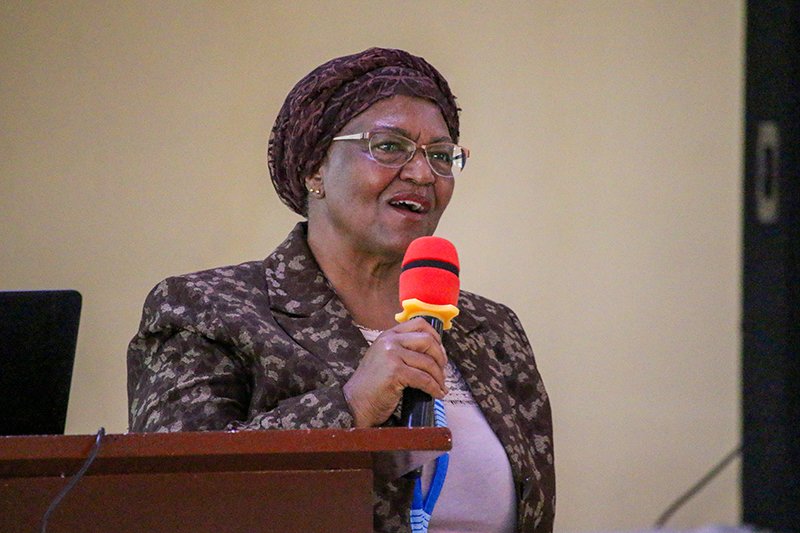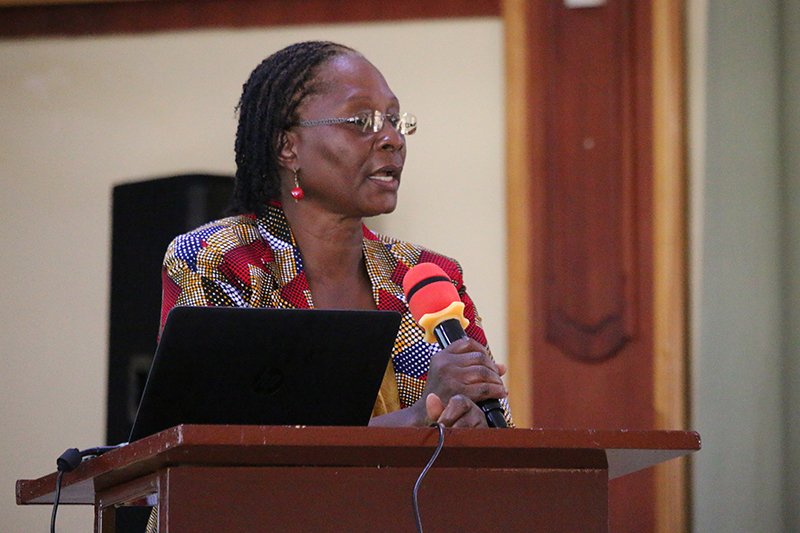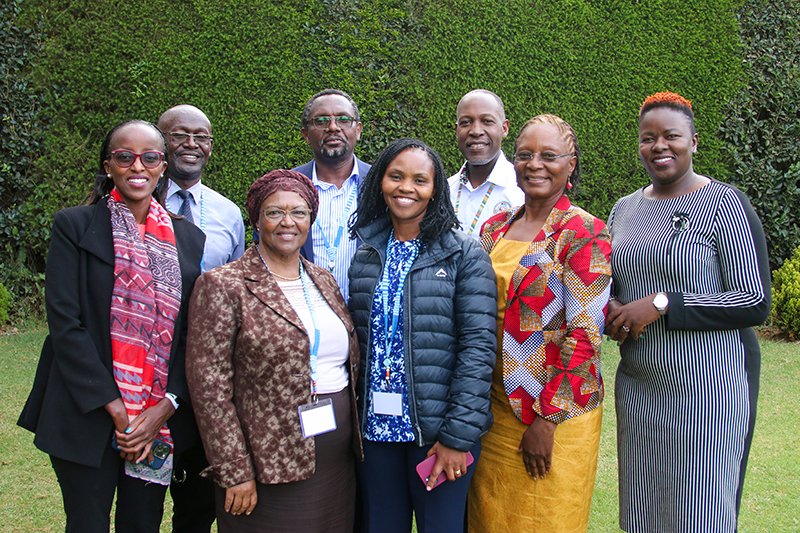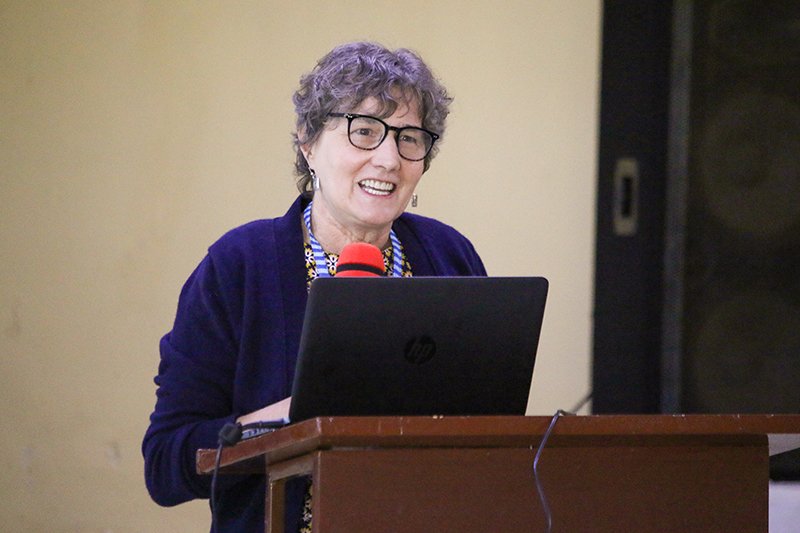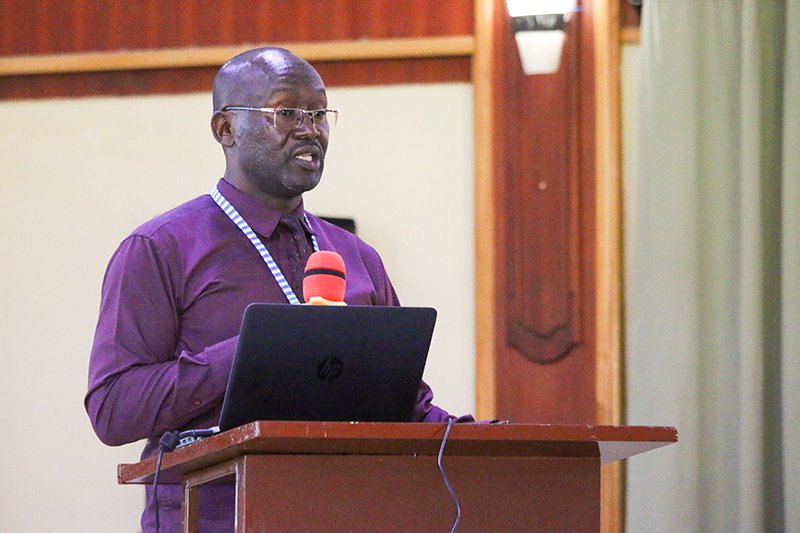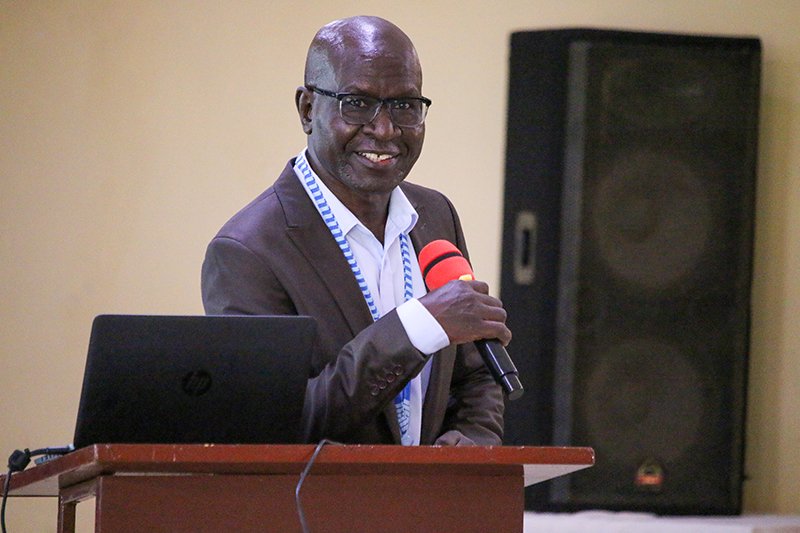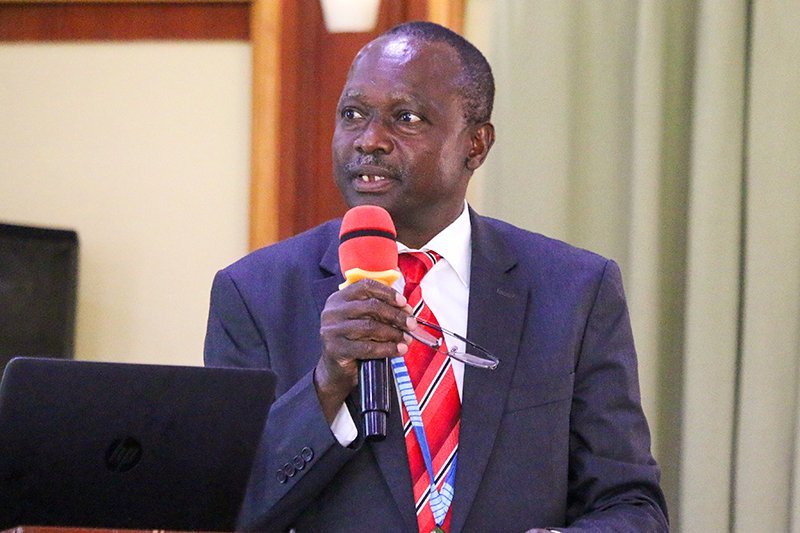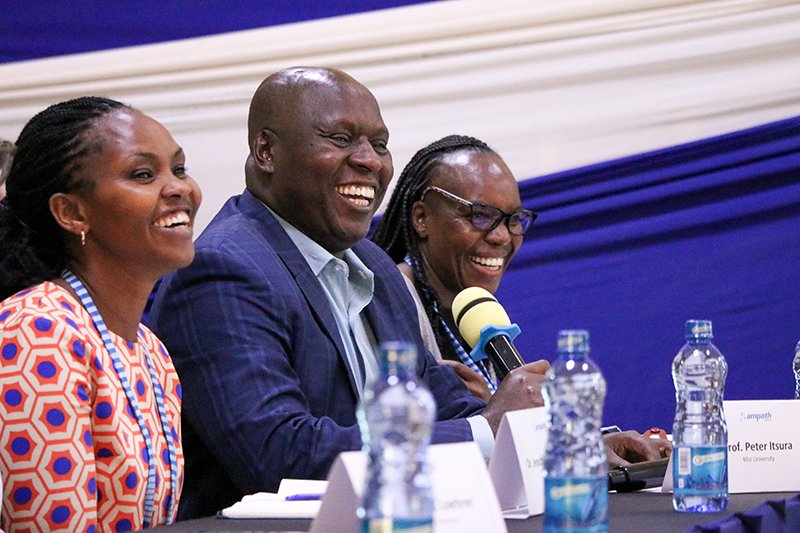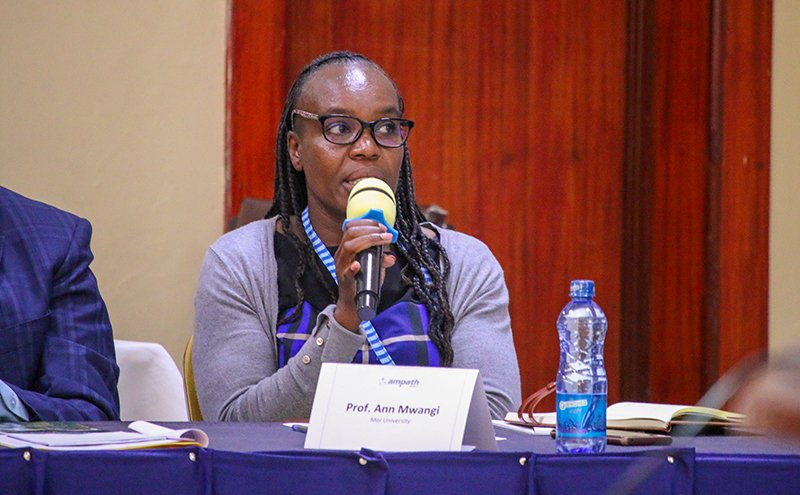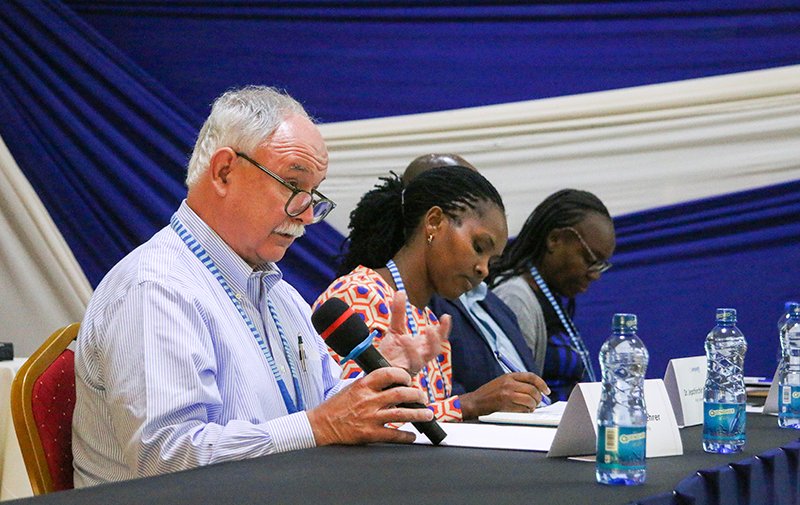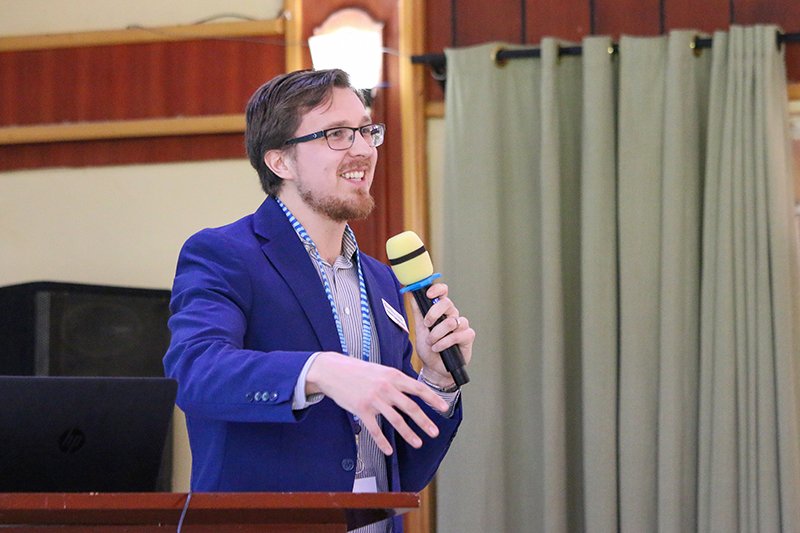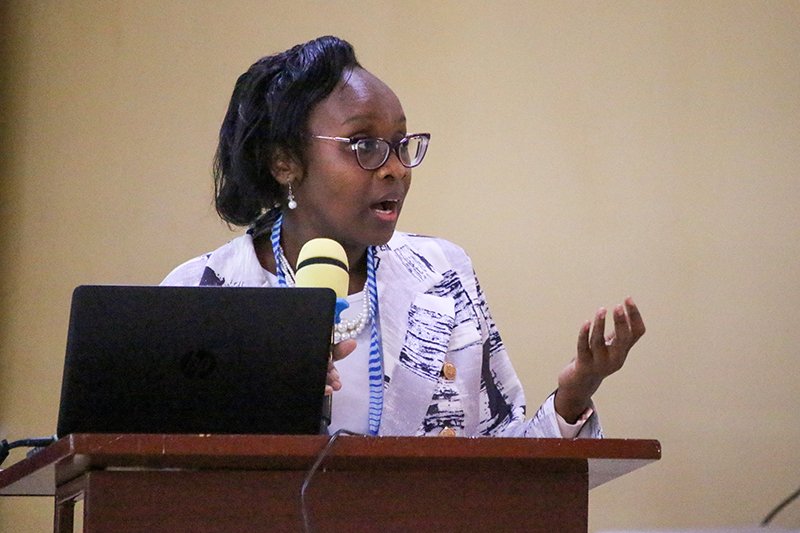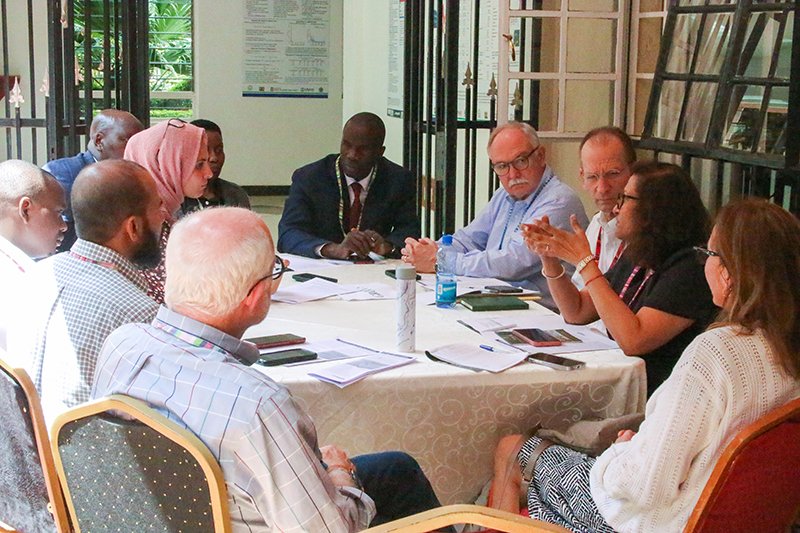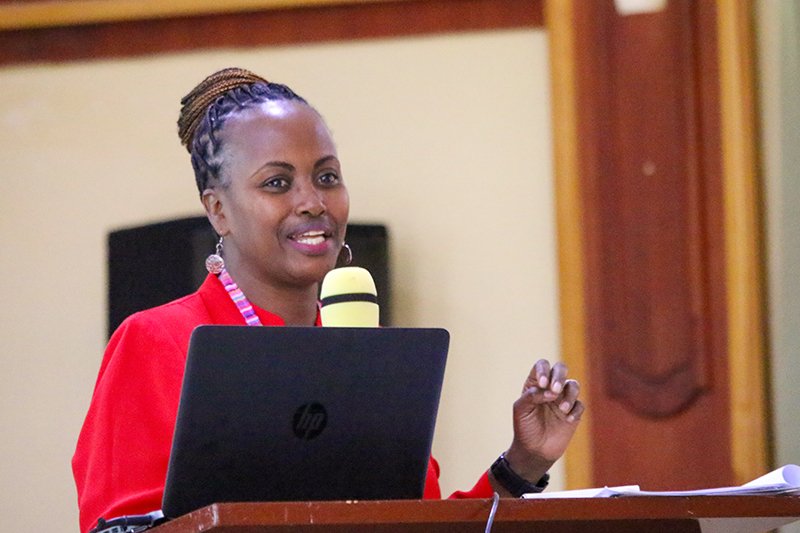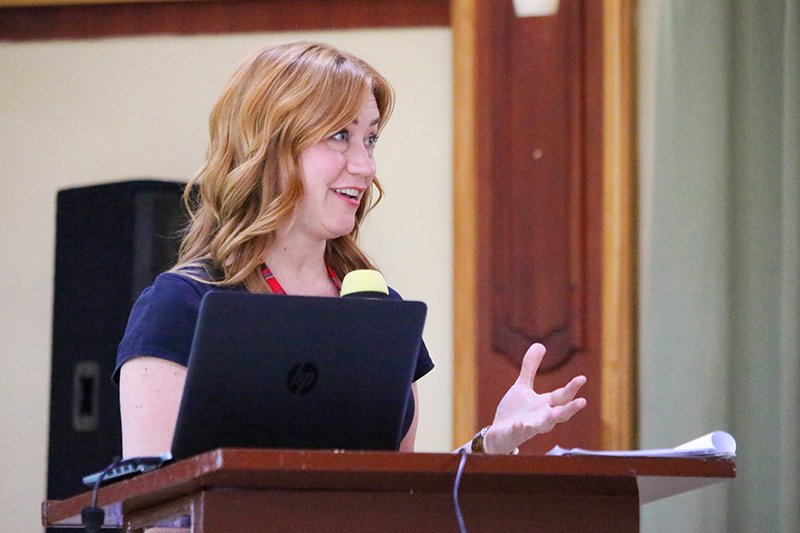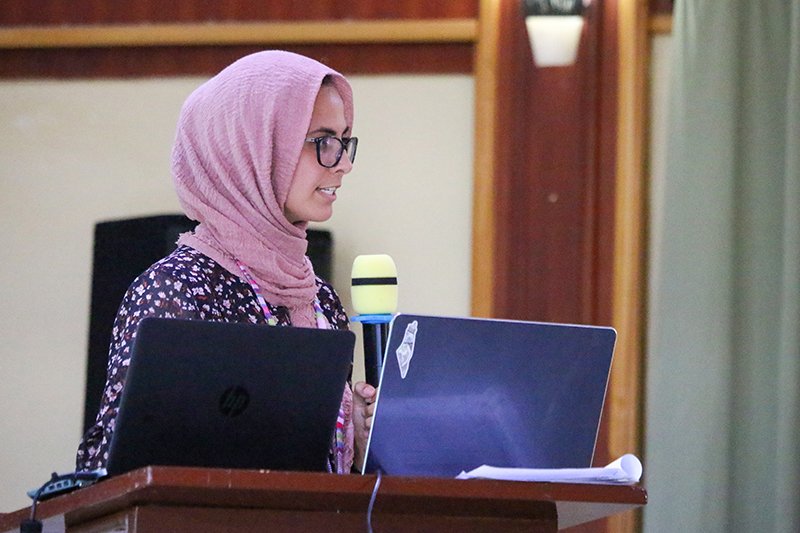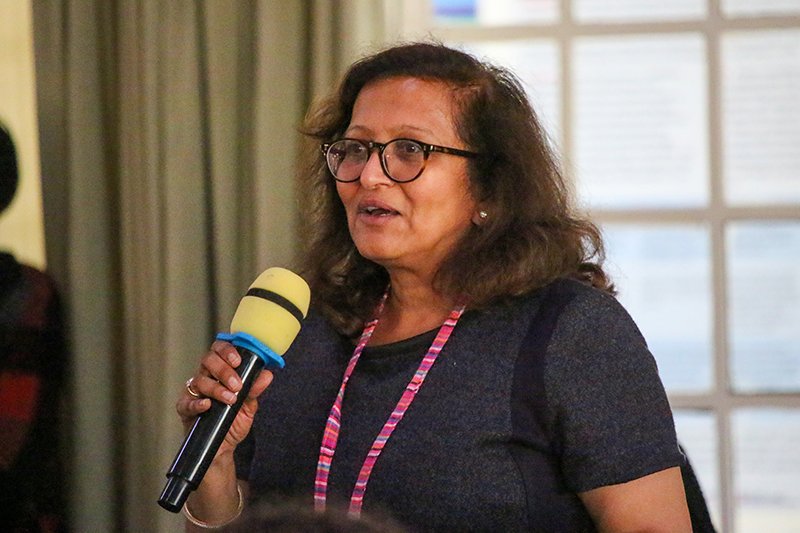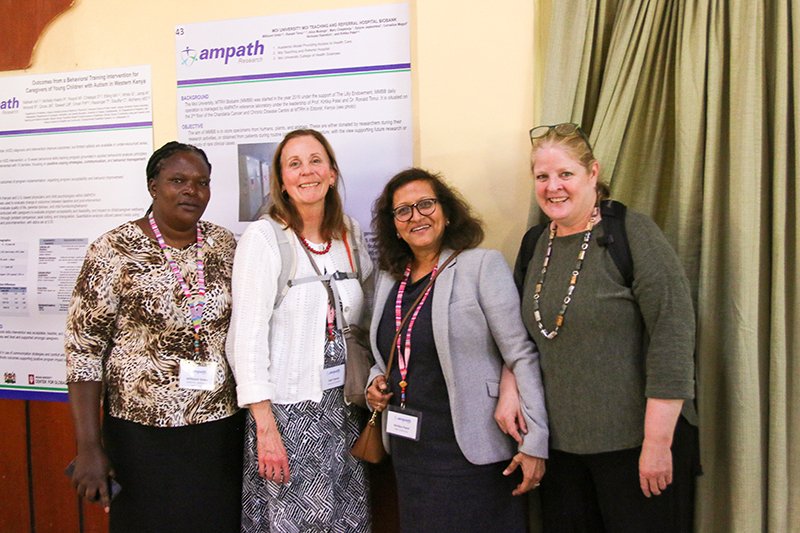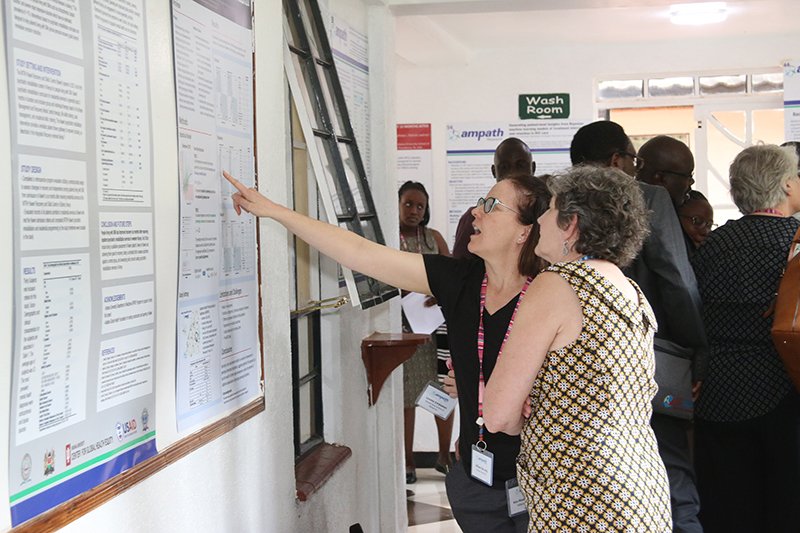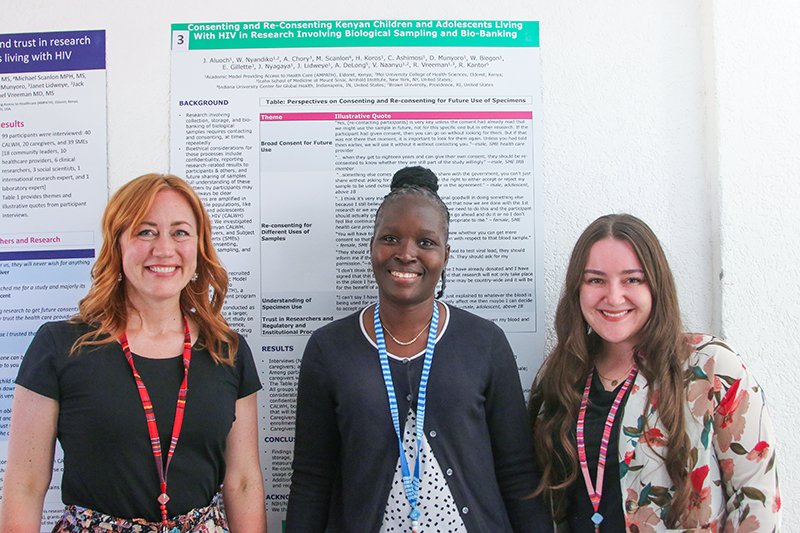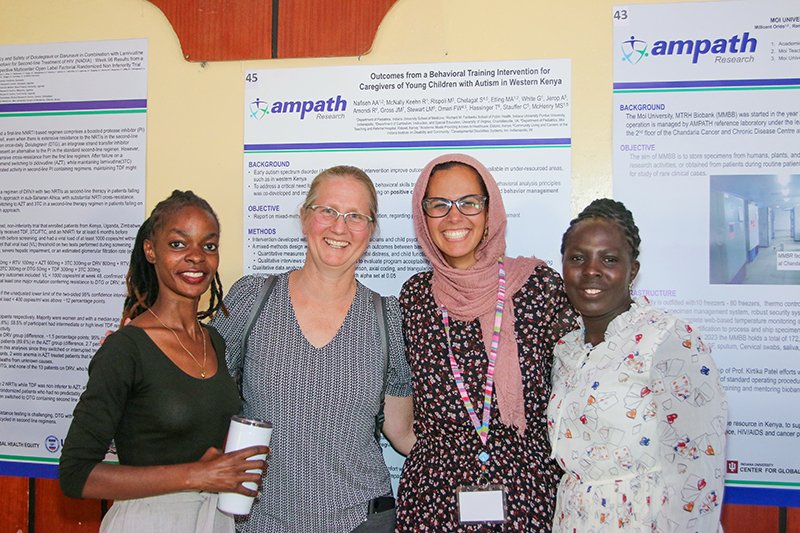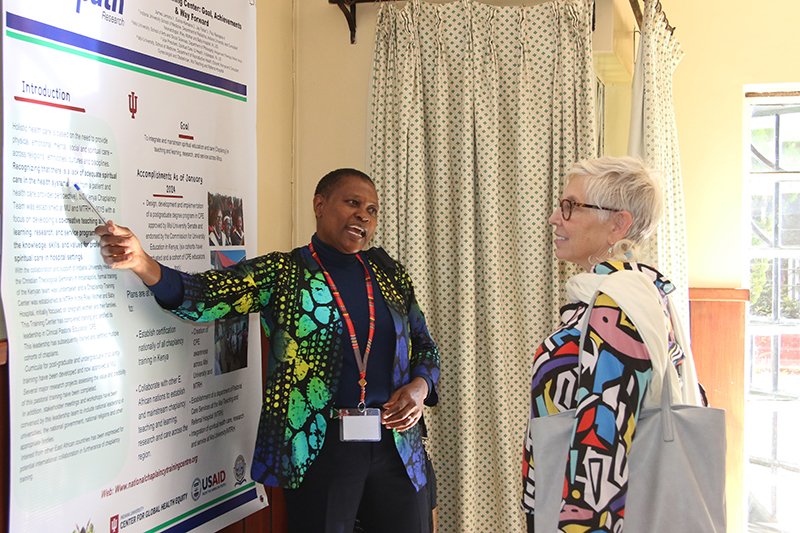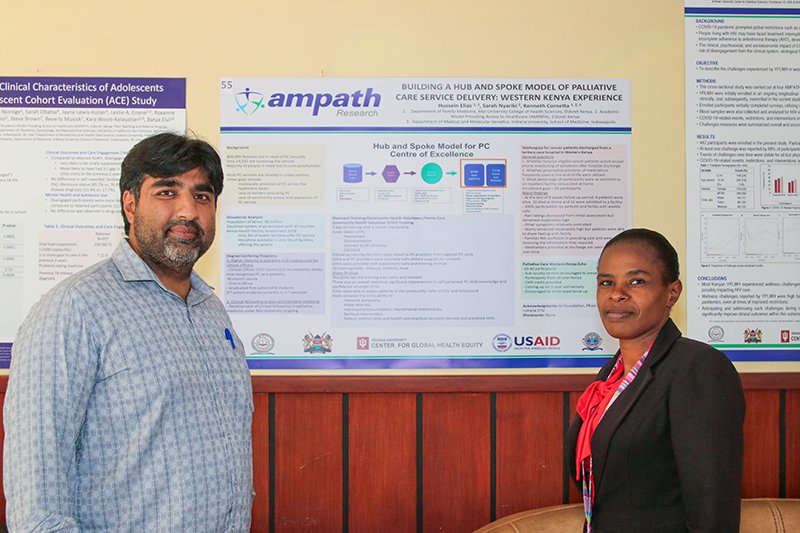AMPATH Research Retreat Focuses on Growing Capacity and Involvement
The 2024 AMPATH Kenya Research Retreat welcomed nearly 100 AMPATH leaders, researchers and research staff members to the journey towards the vision of “a vibrant, world-class, Kenyan-led community of researchers engaged in continuous improvement of health globally.”
Professor Robert Tenge Kuremu, principal of the Moi University College of Health Sciences, opened the two-day meeting saying, “Faith in our shared beliefs of improving humanity and goodwill has helped us to grow over many horizons in our journey since the birth of the collaboration and led to establishment of AMPATH. We have developed infrastructure to support research. We have influenced policies through the work that we have done. And we have built human resources and capacities that we never imagined could have happened before.”
Professor Kara Wools-Kaloustian, Professor Winstone Nyandiko and Principal Robert Tenge Kuremu joined more than 100 others at the AMPATH Research Retreat.
The retreat featured presentations, panel discussions, and small break out groups organized into three types of sessions: strategy sessions focused on strengthening priority aspects of the program; new research initiatives sessions focused on exciting new initiatives in data science, research translation and a proposed research center of excellence; and sessions focused on programmatic updates and policies.
Professor Winstone Nyandiko and Professor Kara Wools-Kaloustian, co-directors of the AMPATH Research Program, led a review and update of the existing research priorities including:
Strengthen development of a well-resourced and sustainable infrastructure for research that enables the efficient conduct of high-quality research.
Increase the number of successful independent investigators working in collaborative, interdisciplinary research teams by providing better access to high-quality training and mentorship.
Enhance supportive, research-intensive cultures within the schools and departments of all AMPATH partners.
Accelerate growth in relevant, high-yield research initiatives that will improve policy and strengthen the health systems and communities we serve including biomedical innovations, health economics/equity, population health, informatics, and implementation science research.
Incorporate research into ongoing efforts to expand AMPATH innovations to additional underserved populations outside Kenya.
Professor Nyandiko lauded the success of the research program while highlighting the need to diversify funding. “We’ve received over $230 million USD since inception for research and training grants with an average of about $18 million USD per year. Most of it is through the National Institutes for Health, and as you heard the Principal mention, we need to look at improving the spectrum of people who can fund us,” he said. “We have additionally published over 1,400 peer-reviewed publications, a testament to the research output but also a big impact on Moi University’s ranking in the world map.”
Dr. Wools-Kaloustian discussed the comprehensive research training and mentorship plan which includes integrating master’s students into existing research projects and new opportunities created by a D43 training grant for implementation science. “A mentorship curriculum was developed for investigators within Moi University. It’s currently in the School of Public Health being pilot tested,” she added.
A panel on “Building Engagement Structures for Sustainability and Capacity Building” was moderated by Dean Julia Songok of the Moi University School of Medicine (MUSoM) and included Dean Ochiba Lukandu of the Moi University School of Dentistry; Dean Patrick Kerre of the Moi University School of Public Health; Dr. Myra Koech, chair of the MUSoM Department of Pediatrics; Professor Pius Masau, MUSoM Department of Surgery and Anaesthesiology; Dr. Emily Nyaga, Moi University School of Nursing and Midwifery; Dr. Chrispine Odour, chair of the MUSoM Department of Medicine; and Dr. Philip Tonui, chair of the MUSoM Department of Reproductive Health.
Panelists explored successes and challenges of engaging with the AMPATH research program; identified areas of mutual benefit and identified strategies for better engagement and collaboration for Moi University departments, faculty and trainees and the AMPATH research program.
Following the panel, small groups discussed opportunities, challenges and potential solutions for improving research engagement, sustainability and capacity building which were reported back to the gathering.
Dr. Jepchirchir Kiplagat and Michael Scanlon, co-assistant directors of the AMPATH Research Program Office presented a recent assessment of the research program’s strengths, weaknesses, opportunities and threats (SWOT) as well as updates to the research standard operating procedures.
Professor Fatuma Some and a task force of leaders including Professor Abraham Siika, Professor Mabel Nangami, Professor Edwin Were, Professor Nyandiko, Dr. Lilian Apadet, Robert Rono, Dr. Everlyne Rotich, Dr. Charity Kanyoro, Dr. Kiplagat, Dr. Natalie Sang and Dr. Charles Kwoba showcased the plans for creating a Research Centre of Excellence led by Moi University College of Health Sciences. “We felt that maybe putting all of these research programs, research initiatives, research interests under one roof would be more cost-effective and promote our collaboration even more,” said Professor Some. The plans call for a multi-phase development of a research infrastructure campus to include a biomedical research center, research training center, and an incubation and commercialization hub on 20 acres and a total budget of approximately $55 million USD.
Professor Joe Hogan, Brown University, presented about the vision for the development of a Data Science Centre of Excellence. Prof. Hogan reviewed the history of the AMPATH Data Analysis Team (ADAT) which has grown from two staff members in 2007 into a robust department with a D43 training grant and a current staff of nine people in Kenya and two people in the U.S. Prof. Hogan and Prof. Mwangi are co-directors.
On the second day of the conference, Mr. Robert Rono presented updates on the Research and Sponsored Projects Office (RSPO) including funding, operations, successes and opportunities. Professor Edwin Were provided an overview of the Institutional Research and Ethics Committee (IREC) as well.
A second panel moderated by Dr. Samson Ndege, chair of the Department of Epidemiology and Medical Statistics at Moi University, focused on “Building Effective and Accessible Mentorship and Training Opportunities.” Panelists Dr. Peter Itsura, MUSoM; Dr. Patrick Loehrer, Indiana University Simon Comprehensive Cancer Center; Dr. Kiplagat; and Professor Anne Mwangi, associate professor of Biostatistics at Moi University, discussed current mentorship and training opportunities and opportunities to increase those opportunities.
Dr. Faith Yego, Moi University, and Chris Rice, IU Center for Global Health Equity, explained the value of including research translation in research project design to speed adoption of successful interventions and engage policy makers. Following a brief presentation, participants gathered in small groups to strategize about implementing research translation in their own work.
At the conclusion of the two-day retreat, a research symposium included the presentation of more than 50 research posters across a wide range of research topics and three oral presentations:
IU School of Medicine student Amira Nafiseh presented on the “Development of a Culturally Adapted Behavioral Intervention for Caregivers of Children with Autism Spectrum Disorder in Western Kenya and Indiana: A Case of Reciprocal Innovation.”
Dr. Violet Naanyu, founder and director of the AMPATH Qualitative Research Core, presented “You are referring somebody and you don’t have a point person to call on the other side: Community engagement to inform interventions to improve referral for hypertension in western Kenya.”
Dr. Rachel Vreeman, director of the Arnhold Institute for Global Health at Mount Sinai, presented “A baseline analysis of the physical, social, and mental health of a prospective cohort of adolescents and young adults living with HIV, the Adolescent and Young Adult Network of IeDEA (AYANI).”
The research retreat was officially closed on 16th by remarks from Prof. Wools-Kaloustian and Prof. Nyandiko lauding the attendees for a remarkable attendance and insightful inputs that would help shape the next five-year AMPATH research strategy outputs.
Presentations, posters and other support documents from the meeting are available.


